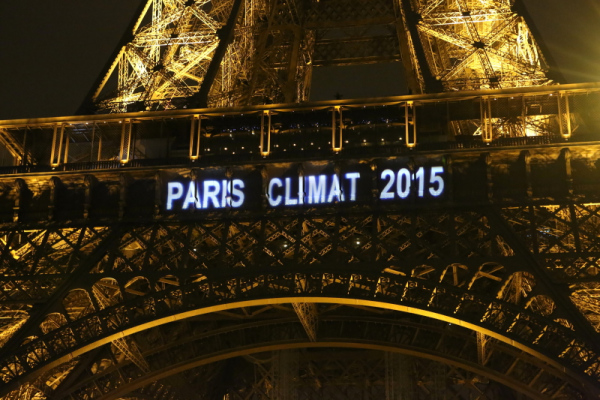rabble is expanding our Parliamentary Bureau and we need your help! Support us on Patreon today!
When our children’s children look back to what we did to keep our planet livable, they may see this year’s United Nations climate conference in Paris as a turning point.
The 21st Conference of the Parties (COP21) may have been our last chance for a meaningful agreement to shift from fossil fuels to renewable energy before ongoing damage to the world’s climate becomes irreversible and devastating. Government ministers, negotiators and world leaders spent the first two weeks of December creating a guide for the next stage of humanity’s action on climate change.
Nations that met in Paris are responsible for over 95 per cent of global emissions. On December 12, following multiple rounds of long meetings, they revealed the final text of the Paris Agreement.
Though far from perfect, it’s a significant achievement. When nations last attempted a global climate pact — in 2009 at COP15 in Copenhagen, Denmark — negotiations broke down and the resulting declaration was considered a failure. The Paris Agreement, in process and outcome, is a dramatic improvement — a product of the growing urgency to act on the defining issue of our time. It’s the first universal accord to spell out ways to confront climate change, with Canada and other industrialized nations required to transition from fossil fuels to 100 per cent renewable energy by 2050 and developing nations by about 2080.
Before meeting in Paris, governments drafted plans to reduce national carbon emissions beginning in 2020. One COP21 negotiation goal — a review mechanism to encourage countries to improve targets over time — was achieved, giving hope that reductions will keep global temperature rise below the 2 C limit beyond which science indicates the consequences of burning fossil fuels will become catastrophic. Present commitments won’t quite get us there, but the called-for improving of targets every five years will get us closer. Past experience shows that once a commitment is made to address a crisis, many unexpected opportunities and solutions result. The agreement also acknowledges that limiting temperature rise to 1.5 C should drive future goal-setting.
Canada’s delegation had the added goal of rebuilding the country’s reputation as an environmental leader. For years, we received countless “Fossil of the Day” awards for short-sightedness and stonewalling negotiations.
Responding to calls from citizens countrywide, our delegation returned to a more co-operative approach, advocating for inclusion of human rights and indigenous knowledge, along with recognition of the critical importance of the 1.5 C goal. Canada still received two “Fossil” awards, for lacking emissions-goals ambition and limiting availability of funds for “loss and damage,” but compared to some nations, our country was a positive force.
The world’s largest greenhouse gas emitter, China, was criticized for trying to water down requirements for a common emissions-and-targets reporting system and opposing a process to require countries to update emissions-reductions goals every five years, advocating instead for voluntary updates.
Compromises produced a final product that falls short of assigning liability for past emissions and providing dependable “loss and damage” payments to nations already suffering from the effects of climate change. Ongoing pressure is also needed to ensure targets are met and become more ambitious over time. Despite these shortcomings, the Paris Agreement is a leap forward in the fight against climate change. Funding for vulnerable and developing nations, plans to ratchet up ambition at regular intervals and recognition of the role of Indigenous knowledge will play major roles in future action.
The first step in realizing stronger goals for Canada begins now. Our government promised more ambitious targets and a framework for cutting carbon pollution and expanding renewable energy within 90 days of the conference, by March 11, 2016. We’ve learned Canadian leaders will stand up for important issues, but we need to push them to be as ambitious as possible. I believe Canada’s commitment will inspire people at all levels of society to propose ways to speed up our shift to clean, renewable energy, and reduce waste through greater energy efficiency.
The global community has taken a big step to get human civilization back on track. It’s up to us to ensure that the planet we want — with clean air, safe water, fertile soil and a stable climate — stays within reach, for our sake and the sake of our descendants.
Written with contributions from David Suzuki Foundation Climate and Clean Energy Communications and Research Specialist Steve Kux.
rabble is expanding our Parliamentary Bureau and we need your help! Support us on Patreon today!



